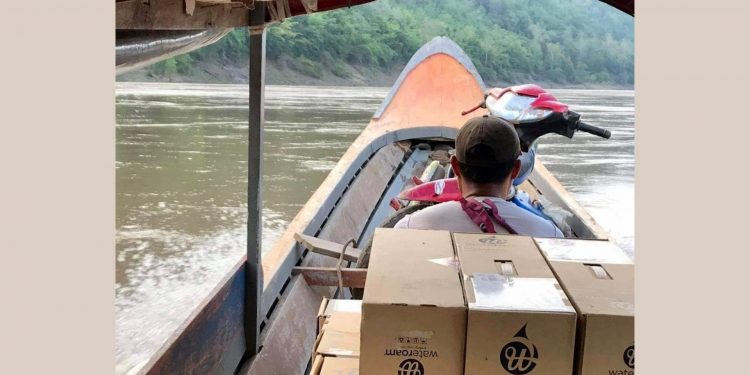While we are deep in the midst of a pandemic, many of us living on this sheltered sunny island forget that communities across the world are struggling to gain access to basic amenities, education, and healthcare.
Not Wateroam and Seva Seed.
The two enterprises born and bred in Singapore, aim to change the lots in life of people across the globe. From providing affordable and practical water solutions to empowering underprivileged girls to make their own reusable pads for their period, their works lie at the intersection of several of the United Nations’ (UN) sustainable development goals, including gender equality, clean water and sanitation, good health and well-being, and reducing inequalities.
Wateroam
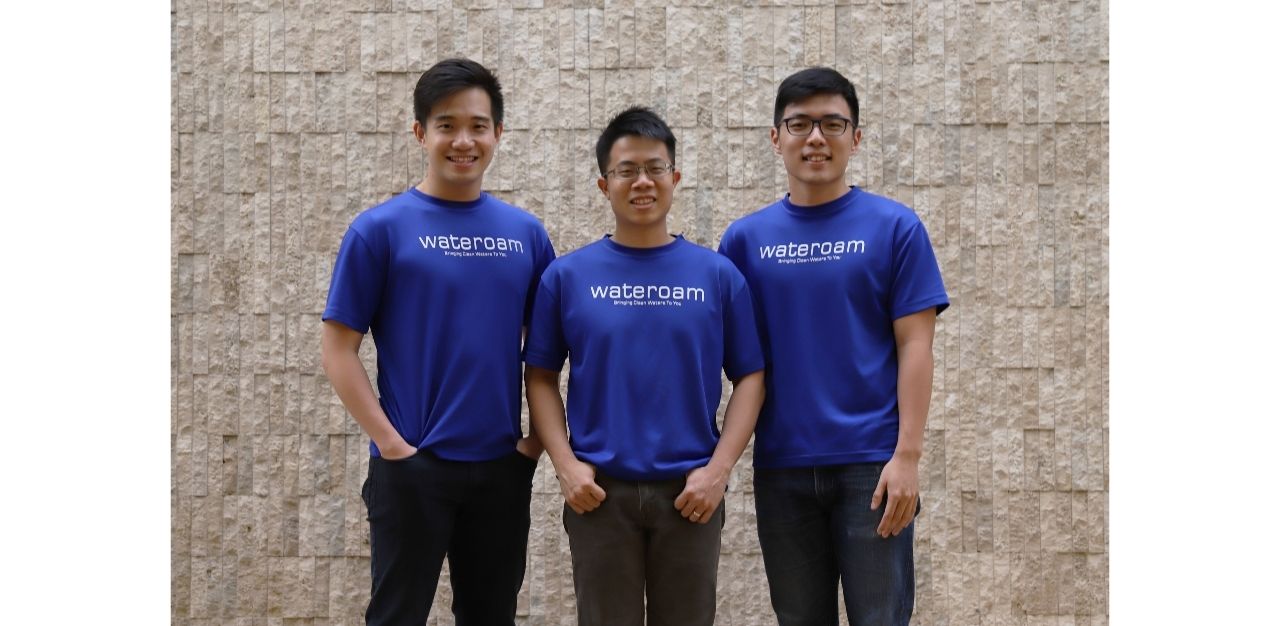
Founded by a team of environmental engineering graduates from the National University of Singapore, Wateroam is a social enterprise that focuses on building honest water solutions that bring about a better world.
The idea sprouted during their university years, when they witnessed firsthand the pressing water issues that developing nations, such as Cambodia and Indonesia, face during their respective overseas community service trips.
“Traditional solutions like plasma biosensors are excellent filters, but a lot of the time, the water that comes into the systems is a little bit too harsh for some of the existing commercial solutions that are out there,” says Mr Lim Chong Tee, co-founder of Wateroam. They first generated interest and seed funding in 2018.
Mr Lim had, for example, witnessed a previously installed filtration device pouring out sewage and faecal sludge in one of the village homes he visited. With water directly obtained from the river and the lack of proper municipal utilities in place, people practice open defecation, he says.
Centralised water treatment infrastructures like those in Singapore would cost millions, even billions of dollars, and a lot of time and bureaucracy. On the other hand, existing affordable solutions can only remove bacteria by about 90 to 99 per cent, which means that they would not be completely safe for drinking.
Hence, there lies a need for water filtration systems that are heavy-duty, yet lightweight and affordable enough to qualify as feasible solutions for disaster-stricken or poverty-ridden areas — an area in which the Wateroam team realised there were major gaps that they sought to fill.
“It was a very long iterative process — we had 15 to 20 prototypes that we tinkered with along the way. But we started off by firstly interviewing a lot of local people to understand what their needs were, before settling on a design we were going to mass produce at scale,” says Mr Lim, sharing that their first prototype weighed almost 40 kg and caused one of his teammates to suffer a slipped disc during the transportation process.
Their end result: A game-changing backpackable filtration device that weighs less than 5 kg and is able to produce about 200 to-300 litres of water per hour. “This makes it a solution that can provide clean water for a community of 100 to 200 people very comfortably,” he adds. “You can imagine them being installed in community spaces like churches, mosques, schools, orphanages, and healthcare centres, and villages will come daily to fill up their water containers.”
Wateroam works closely with non-governmental organisations (NGOs) or government statutory boards, which make up their key clientele. These not-for-profit bodies would either raise funds or employ their “wash capitals” to install the devices in impoverished communities.
Currently, their solutions are implemented in most Southeast Asian countries, including Cambodia, Thailand, Malaysia, the Philippines, and Indonesia, even travelling as far as Uganda, which supplies water to nearby states in Africa.
Their work does not stop there. To ensure longevity, the team works closely with the communities on the ground, ensuring the setup process is done properly, educating the locals on the maintenance process, and passing on other forms of holistic “wash knowledge”.
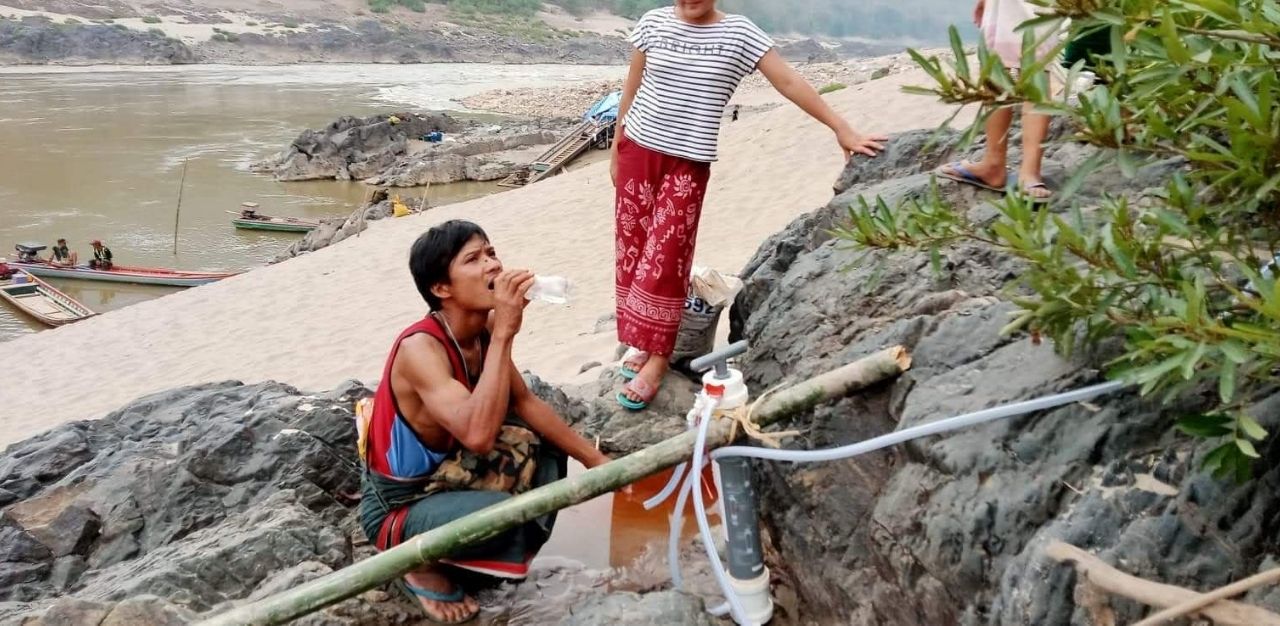
Most prominently, Wateroam actively works with partners in refugee camps, such as the Rohingya refugees in Karen (Kayin) state in Myanmar.
Apart from designing solutions for disaster relief and rural developing markets, Wateroam also produces urban home filters for families in Singapore. “For every filter that a person buys here, we commit a significant amount of profits to help install a water filter in our rural segment,” says Mr Lim.
Seva Seed
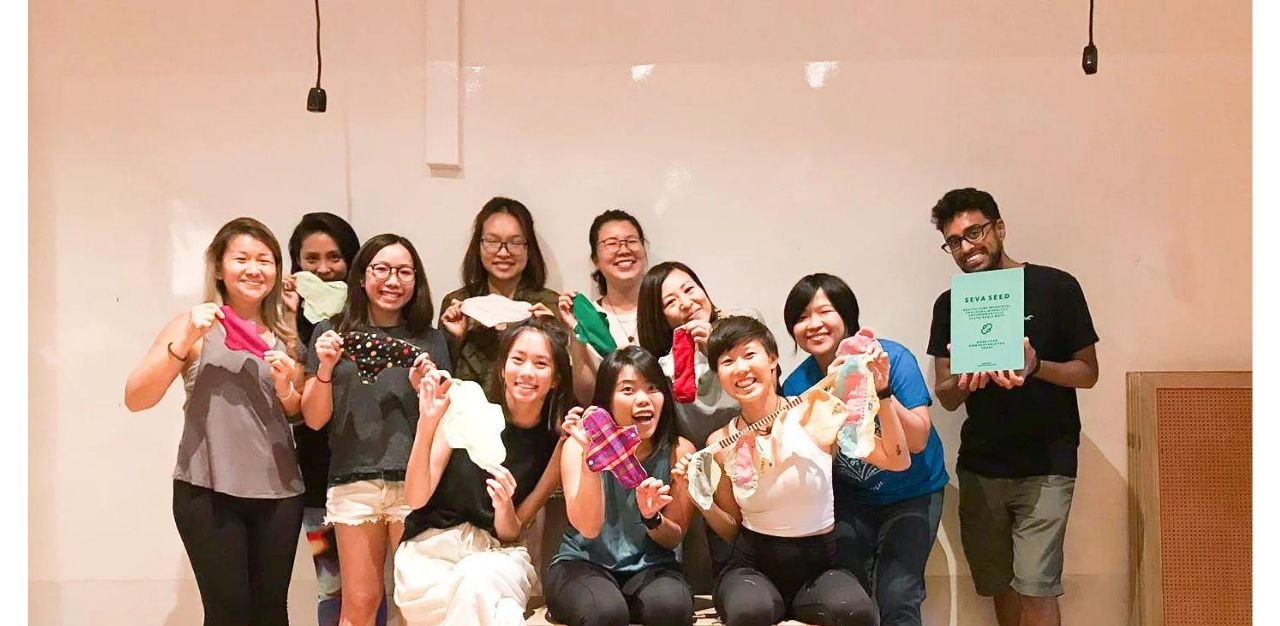
When craniosacral therapist and yoga teacher Kathy Gabriel took yearly trips to The Lamu Yoga Festival in Kenya, she would always be asked to donate sanitary pads. But that got her questioning the good that would do for the underprivileged girls there.
“Every time we went, each of us would buy about 20 pads each and — but if you think about it, 20 pads may not even be able to help one girl get through her cycles for an entire year, depending on her age, body type, and other factors,” says Ms Gabriel.
This was when her fellow yogi Miwa Someya, an early adopter of reusable pads, thought it might be useful to teach the girls to sew their own pads.
“It’s very simple and feasible. You just need basic sewing skills,” she says. “We’ve been prioritising convenience so much that we’ve forgotten that there existed a way before [disposable pads]. Our mothers and grandmothers used to do it in the past,” says Ms Gabriel.
The following year, the duo went back with a load of donated fabric they had gathered from their friends and family. Within a span of two and a half hours, they have taught about 350 girls how to make their own pads.
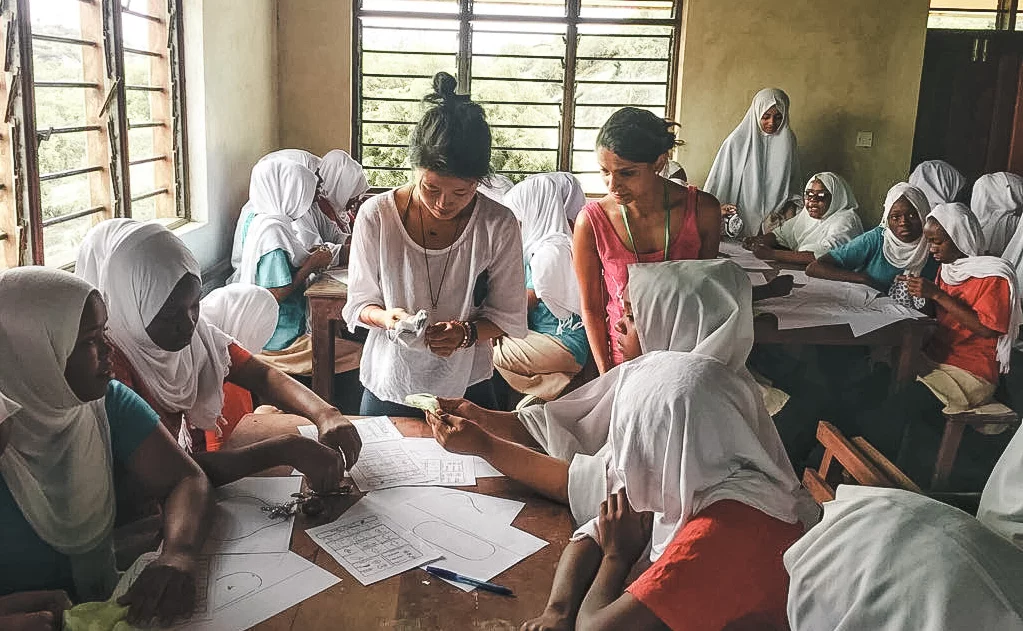
This was when Seva Seed was born. It is a charitable organisation providing menstrual education and alternatives to both needy communities across borders and in Singapore — championing social impact in both the environmental and gender equality fronts.
In impoverished states, UNICEF reports that 20 per cent of girls drop out of school due to menstruation every year, trickling down into further issues surrounding gender inequality. Back home, falling in line with the ecofeminism movement, women are becoming increasingly conscious about reducing the environmental footprint of their periods.
“We don’t just teach girls how to sew pads. Girls should be able to ask questions when being educated on their menstrual cycles. So we teach them what to expect during their periods, how to wash, how to identify different areas of pain — Urinary Tract Infection (UTI) pain versus regular period pain, for example,” says Ms Gabriel.
Many of us take for granted the knowledge easily available to us about our reproductive cycles. “In Laos, I met this girl who was burying her pads in the forest for five years because she thought she had cancer,” she adds. “We also assume that mothers would be the ones telling us what our menses are, but in many areas, the topic is so taboo that even women themselves don’t know how to broach the topic.”
It is for these pre-existing cultural barriers that there is a need for menstrual education to be integrated into public education. But in places like Kenya, people are starving so much that menstrual education is too far down their hierarchy of needs.
Ms Gabriel, who operates with the mantra that “measuring impact is more important than the act of doing good itself”, says, “One of the girls told us the following year that she was able to buy shoes for her sister — that’s how cost-saving it is for them. A lot of the girls wouldn’t go to school otherwise, and some even have to prostitute themselves to be able to afford pads.”
Join the conversations on TheHomeGround Asia’s Facebook and Instagram, and get the latest updates via Telegram.



